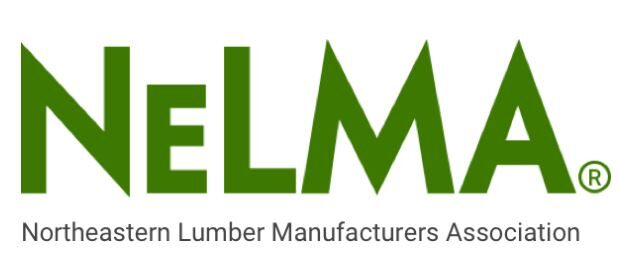The HISTORY OF NELMA
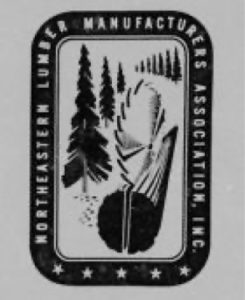 The National Industrial Recovery Act (NIRA) was legislation enacted on June 16, 1933 during the Great Depression as part of President Franklin D. Roosevelt’s New Deal. The statute basically authorized the President to regulate industry and permit cartels and monopolies in an attempt to stimulate economic recovery, and established a national public works program. The Administration believed that unrestrained “ruinous” and “cut-throat” competition was a leading cause of the Great Depression and that government had a critical role to play through national planning, limited regulation, the fostering of trade associations, support for “fair” trade practices, and support for “democratization of the workplace” (a standard work week, shorter working hours, and better working conditions). Roosevelt himself, the former head of a trade association, believed that government promotion of “self-organization” by trade associations was the least-intrusive and yet most effective method for achieving national planning and economic improvement.
The National Industrial Recovery Act (NIRA) was legislation enacted on June 16, 1933 during the Great Depression as part of President Franklin D. Roosevelt’s New Deal. The statute basically authorized the President to regulate industry and permit cartels and monopolies in an attempt to stimulate economic recovery, and established a national public works program. The Administration believed that unrestrained “ruinous” and “cut-throat” competition was a leading cause of the Great Depression and that government had a critical role to play through national planning, limited regulation, the fostering of trade associations, support for “fair” trade practices, and support for “democratization of the workplace” (a standard work week, shorter working hours, and better working conditions). Roosevelt himself, the former head of a trade association, believed that government promotion of “self-organization” by trade associations was the least-intrusive and yet most effective method for achieving national planning and economic improvement.
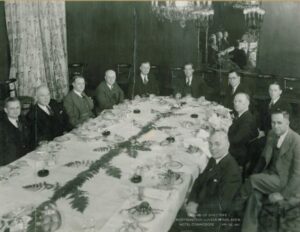 The Recovery Act established some 765 industry and supplemental codes, each containing several trade-practice provisions for basically every type of industry in America, including the wood products industry. National, regional, and local code boards had to be created to interpret and enforced the Act. The “Lumber Code Authority” was one of these established and structured to monitor and enforce the code and its provisions which included the most common provision of price filing by each lumber manufacturer. Lumber mills were required firms to file their prices with their particular code authorities and give advance notice of any price changes. Other provisions of the lumber code were maximum employee work hours, minimum wages, set worker’s wage, field inspections, and forest conservation requirements. To administer and monitor the provisions of the Lumber Code Authority in the Northeast, the Northeastern Lumber Manufacturers Association (NELMA) was created, and the first meeting of the region’s lumber industry leaders was held June 22, 1933 in New York City at the New Yorker Hotel.
The Recovery Act established some 765 industry and supplemental codes, each containing several trade-practice provisions for basically every type of industry in America, including the wood products industry. National, regional, and local code boards had to be created to interpret and enforced the Act. The “Lumber Code Authority” was one of these established and structured to monitor and enforce the code and its provisions which included the most common provision of price filing by each lumber manufacturer. Lumber mills were required firms to file their prices with their particular code authorities and give advance notice of any price changes. Other provisions of the lumber code were maximum employee work hours, minimum wages, set worker’s wage, field inspections, and forest conservation requirements. To administer and monitor the provisions of the Lumber Code Authority in the Northeast, the Northeastern Lumber Manufacturers Association (NELMA) was created, and the first meeting of the region’s lumber industry leaders was held June 22, 1933 in New York City at the New Yorker Hotel.
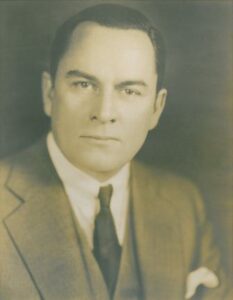 E. R. Plunkett was elected NELMA’s first President and J. J Farrell as Vice-President at that first meeting of the new organization. Since affiliation with the Code Authority was generally legally required, the Association started off with a membership of some 2,500 manufacturers and a budget of more than $100,000 annually. The dues rate was set at $0.25 per thousand board feet and total footage represented in the Association membership was approximately 37 million per month. The Empire State Forest Products Association offered temporary office space in New York City, and Secretary A.B. Recknagel of that organization was appointed acting Secretary of NELMA. Edward W. Treen was appointed Secretary-Treasurer on September 23, 1933 and the Association was incorporated under the laws of the State of Delaware on December 15 of that year.
E. R. Plunkett was elected NELMA’s first President and J. J Farrell as Vice-President at that first meeting of the new organization. Since affiliation with the Code Authority was generally legally required, the Association started off with a membership of some 2,500 manufacturers and a budget of more than $100,000 annually. The dues rate was set at $0.25 per thousand board feet and total footage represented in the Association membership was approximately 37 million per month. The Empire State Forest Products Association offered temporary office space in New York City, and Secretary A.B. Recknagel of that organization was appointed acting Secretary of NELMA. Edward W. Treen was appointed Secretary-Treasurer on September 23, 1933 and the Association was incorporated under the laws of the State of Delaware on December 15 of that year.
A significant enforcement mechanism of the Recovery Act was the Blue Eagle emblem. Companies deemed to be in full compliance with their industry’s code of fair competition were allowed to display the emblem on their storefronts, products, or in their advertisements. Intermediate, wholesale, and retail goods also had to be purchased from NIRA-compliant firms to avoid losing the Blue Eagle.
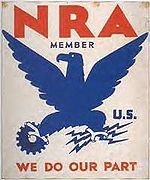 The Blue Eagle was a blue-colored representation of the American thunderbird, Consumers were exhorted to buy products and services only from companies displaying the Blue Eagle banner. The Blue Eagle emblem then supposedly allowed consumers to differentiate between firms that had signed codes and remained in compliance and firms that either refused to sign or lost the emblem as punishment for a violation. By encouraging consumers to sign a “Statement of Cooperation” reading “I will cooperate in the reemployment by supporting and patronizing employers and workers who are members of the NRA,” Roosevelt essentially called for a nationwide boycott of firms that did not display the Blue Eagle. However, a growing displeasure with the Blue Eagle system led to total failure of it use as the participation rate by businesses and consumers dwindled despite government threats and penalties.
The Blue Eagle was a blue-colored representation of the American thunderbird, Consumers were exhorted to buy products and services only from companies displaying the Blue Eagle banner. The Blue Eagle emblem then supposedly allowed consumers to differentiate between firms that had signed codes and remained in compliance and firms that either refused to sign or lost the emblem as punishment for a violation. By encouraging consumers to sign a “Statement of Cooperation” reading “I will cooperate in the reemployment by supporting and patronizing employers and workers who are members of the NRA,” Roosevelt essentially called for a nationwide boycott of firms that did not display the Blue Eagle. However, a growing displeasure with the Blue Eagle system led to total failure of it use as the participation rate by businesses and consumers dwindled despite government threats and penalties.
From the outset, Implementation of the Recovery Act became arduous at best, as it generated literally thousands of regulations printed in documents of 10,000 pages or more. The backlash against NIRA grew quickly among the population, coupled with continuing congressional concern over the Act’s suspension of antitrust laws. Despite the life expectancy of the Act as only 2 years, the Supreme Court ruled unanimously on May 27, 1935 that the NIRA as unconstitutional.
With its duties as a regional code agency now dissolved, the Association’s Board of Directors built upon the industry relationships formed within its 2-year existence and transformed NELMA into a voluntary trade organization that could represent the Northeastern lumber industry on common issues. The Association staff consisted of a Secretary-Treasurer and an office assistant. Member dues were set at $0.10 per thousand.
NELMA endured several lean years following the change and it would be several years before it could fully establish its identity as a trade organization that could work solely as a membership spokesman group to handle issues important to the lumber industry. The monstrous hurricane of 1938 provided such an opportunity for the Association to prove its real worth by getting the lumbermen together to take group action to cope with the disaster.
These early tests of unity and strength proved the desirability of NELMA to its membership as a vehicle to act as a group to resolve formidable problems that continually confront the forest products industry. The evolution of the organization from its birth to its establishment as a leading organization for the growing lumber industry in the Northeast in the 1930’s is now a matter of record. A history that built the foundation for a strong Association who proudly represents its membership today!
